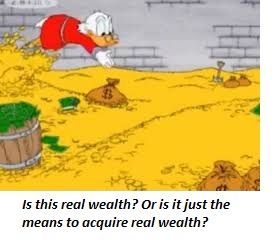BALTIMORE – Stock markets continued their rebound on Wednesday. The Dow rose 284 points… or just over 1.5%. London’s FTSE 100 Index was up 3.6%. And Europe’s equivalent of the Dow, the Euro Stoxx 50, was up 2.7%.
 No wonder the Dragon and his partners in crime flooded the EU banking system with “money” this past week…
No wonder the Dragon and his partners in crime flooded the EU banking system with “money” this past week…
Investors have realized Brexit isn’t the end of the world. First, because they think it won’t really happen. After all, elites can fix elections, buy politicians, and control public policy… surely, they can fix this!
A letter in the Financial Times reminds us that Swedish voters cast their ballots against nuclear power in 1980. The government just ignored them, doubling nuclear power generation over the next 36 years.
Second, because investors see the panic over Brexit leading to more spirited intervention by central banks! The EZ money floodgates – already wide open – are to be opened wider.
The U.S. has its QE program on hold, but Europe’s scheme is gushing like Niagara. Mario Draghi at the European Central Bank buys $90 billion a month in bonds. And he’s not only buying government bonds; he’s buying corporates, too.
Less Than Zero
In Japan, always a trendsetter, the Bank of Japan has bought so many bonds it has pushed Japanese government bond yields below zero – out to more than 45 years on the yield curve!
In other words, you can now lend to the bankrupt Japanese government until 2051 with no hope of making a single yen, nominally, on your investment. Now, with bonds stacking up in their vaults, the Japanese feds are diversifying. They’re buying exchange-traded funds (ETFs), too.
 JGB weekly over the past 5 years….still a widow-maker! – click to enlarge.
JGB weekly over the past 5 years….still a widow-maker! – click to enlarge.
Via its ETF purchases, the BoJ buys about $30 billion of Japanese stocks a year. This has made it a top 10 shareholder in about 90% of the companies listed on the country’s Nikkei 225 Index.
…click on the above link to read the rest of the article…














 Staggering on…. Image credit: David Sidmond
Staggering on…. Image credit: David Sidmond We can identify at least one source of the quackery…
We can identify at least one source of the quackery…
